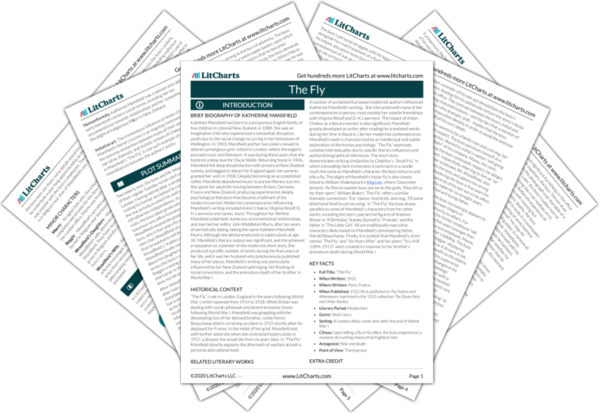Consequences of War
Katherine Mansfield presents numerous consequences of war in “The Fly,” especially touching on loss, grief and change as resulting experiences. In 1922, when Katherine Mansfield wrote the story, Britain was recovering from its involvement in the brutal horrors of World War I. The narrative itself takes place in a London office about six years after the war, where the unnamed protagonist, the boss, speaks with his former employee, the elderly Mr. Woodifield. Both…
read analysis of Consequences of WarPerformances of Masculinity
“The Fly’s” unnamed protagonist, the boss, commands respect and obedience from the story’s small cast of characters. Despite the loss of his only son (and heir to the company) to the recent World War I, the boss heads up a successful business in London and projects a traditionally masculine image of a family man and strong business leader of commendable character. By the story’s conclusion, however, Katherine Mansfield suggests that the boss is actually…
read analysis of Performances of MasculinityMemory
“The Fly,” set about six years after World War I, opens with a man named Woodifield who returns to a London office for his weekly social visit with his former employer, the boss. During the visit, Woodifield—an elderly, frail, and forgetful man—becomes increasingly frustrated that he cannot remember a key detail he wants to share with the boss. Mansfield plays Woodifield’s infirmity against the boss’s youthful vigor as he commands attention in the office…
read analysis of Memory







